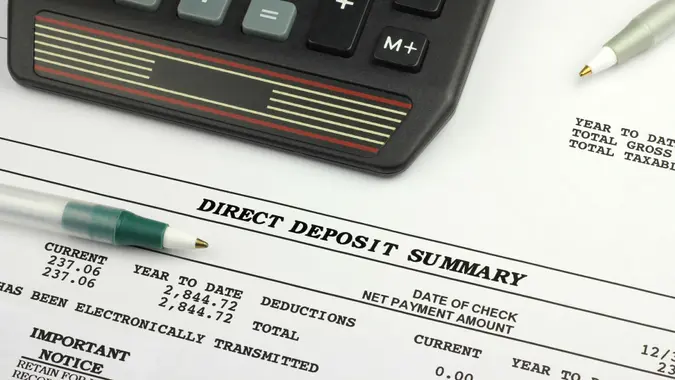One common question when it comes to electronic banking is, “how long does direct deposit take?” This seemingly simple question can have a multitude of answers, largely dependent on several factors, such as the financial institution involved, the nature of the transaction, and the policies of the payer’s bank. Let’s unravel this complex process to understand the timeline better.
1. Understanding Direct Deposit
To fully appreciate the timeline of direct deposit. Direct deposit is an electronic payment method that transfers funds from one bank account to another. It’s like a digital courier, delivering your paycheck directly from your employer’s bank account into yours, eliminating the need for paper checks and trips to the bank.
This modern payment method is not just used for wages; it’s also commonly utilized for tax refunds, social security benefits, and other types of payments. This widespread use emphasizes the importance of understanding its timeline, as it can significantly impact one’s financial planning and management.
2. The General Timeline for Direct Deposit
Generally, direct deposits are designed to be fast and efficient. Usually, the funds become available within one to two business days after the payer initiates the transfer. However, just like how the delivery time of a parcel depends on the courier service, the timeline of a direct deposit depends on the payer’s bank’s policies and the receiving bank’s processing times.
Therefore, it’s always a good idea to check with both institutions to better understand when you can expect the funds to be available. This knowledge can save you from potential frustration and help you plan your finances more accurately.
3. The Role of ACH and Banking Hours
A key player in direct deposit transactions is the Automated Clearing House (ACH), a network that coordinates electronic payments and automated money transfers. Like a busy airport hub, ACH processes batches of transactions at specific times during banking hours. Therefore, transactions initiated outside these hours or on non-business days might take longer.
4. First Direct Deposit May Take Longer
It’s important to note that your first direct deposit from a new payer could take a bit longer. This is because many banks have verification processes to ensure the transaction is legitimate, similar to a security check for a first-time visitor to a high-security building. So, if you’re setting up direct deposit for a new job or a government benefit, don’t worry if it takes a few extra days for the first deposit to clear.
5. How to Speed Up Direct Deposit Times
There may be ways to expedite the direct deposit process. Ensuring that all necessary information is correctly provided during the setup process is vital, akin to providing the accurate mailing address for speedy parcel delivery. SoFi experts say, “Receiving your paycheck or other income through direct deposit can simplify your life.”
Additionally, some banks may offer same-day direct deposit services for specific types of transactions. However, this may require prior arrangement or come with additional costs, so it’s always advisable to check with your bank for detailed information.
While the timeline for direct deposits can vary, they’re generally designed to be a fast, efficient way of receiving payments. You can better manage your finances and expectations by understanding the processes and factors involved. After all, knowledge is power; in this case, it’s the power to navigate the financial world more effectively.



